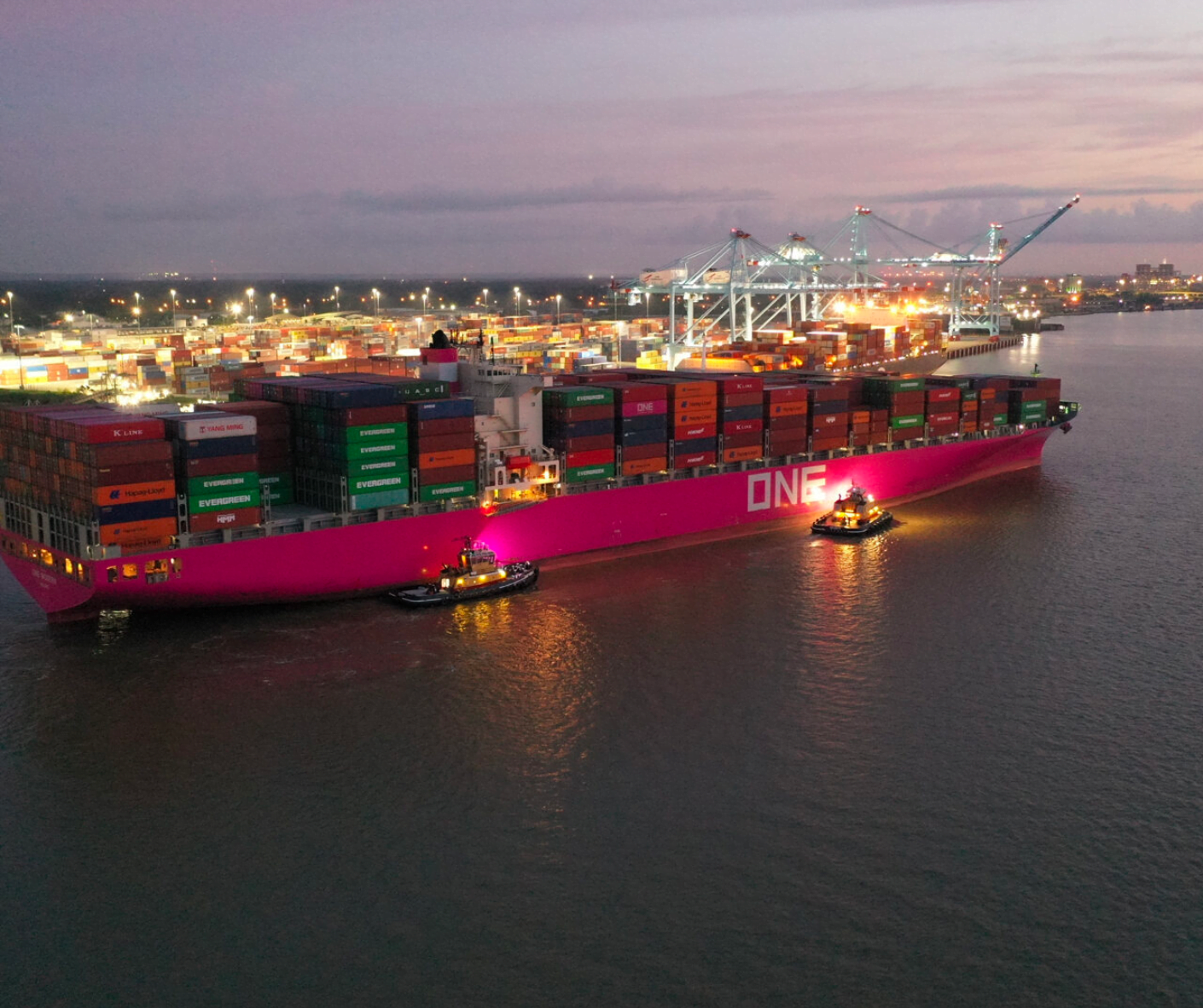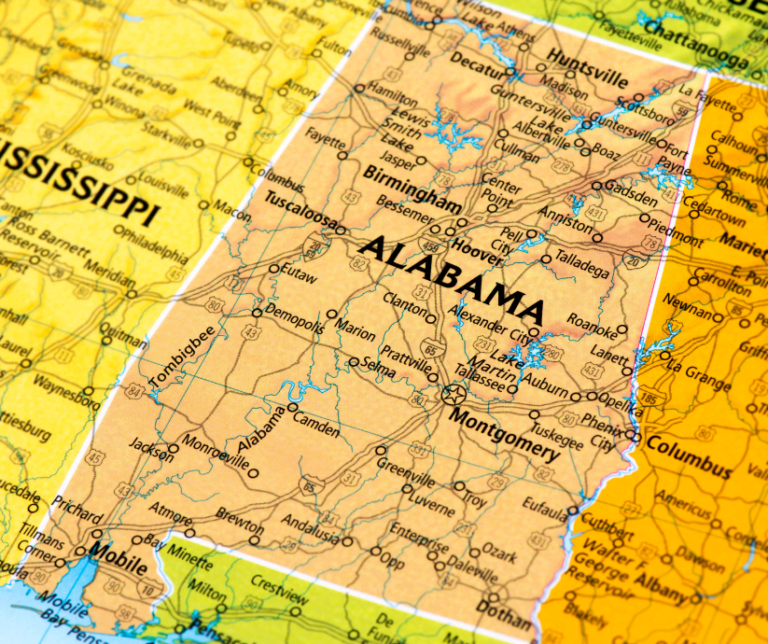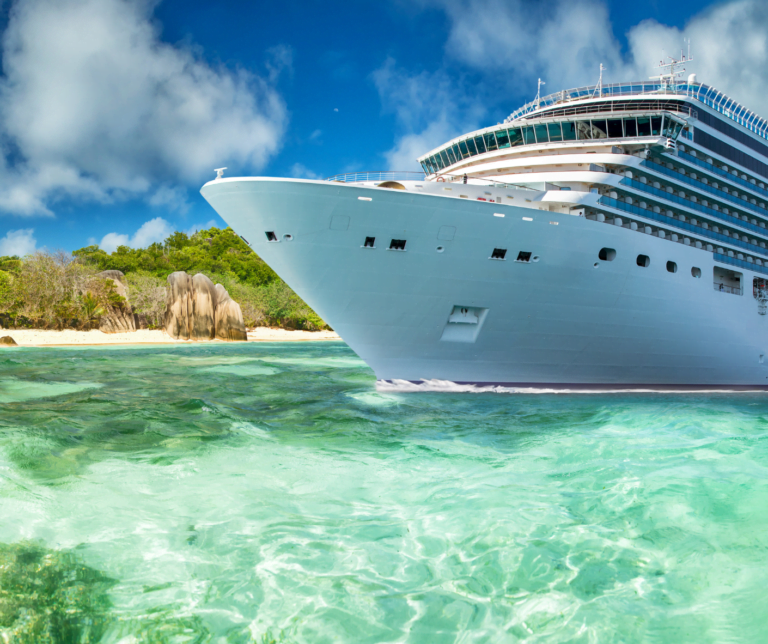Deep-Water Port of Mobile, Alabama
The Jewel of Alabama: The Deep-Water Port of Mobile
Dig into the heart of Alabama, United States, and you’ll discover an important gem – the Port of Mobile, a deep-water port nestled in Mobile. This port, unique in its depth and location, is the singular deep-water port in the state of Alabama, holding a rich history since its establishment in 1702.
Key Insights from the Port of Mobile Analysis
- Unique in Alabama: The Port of Mobile is the only deep-water port in Alabama, uniquely located along the Mobile River, where it drains into Mobile Bay.
- Publicly Owned and Operated: The Alabama State Port Authority owns and operates the port, handling over 58 million tons of cargo annually.
- Significant National Ranking: It was ranked by the United States Army Corps of Engineers as the 9th largest port by tonnage in the nation in 2014, indicating its significant role in U.S. maritime trade.
- Multi-modal Connectivity: The port provides comprehensive access to various transport routes – inland waterway access via barge, connectivity to nine railroads, and intersects both North/South and East/West interstate highway routes.
- Advanced Facilities: With modern on-dock facilities, a high-tech RO/RO terminal, cold storage facilities, and heavy lift capabilities, the Port of Mobile stands as a state-of-the-art shipping hub.
- Significant Economic Player: As the 12th largest port in the U.S. in terms of tonnage, it plays a crucial role in the economy of Alabama and influences the dynamics of the City of Mobile.
- Versatile Cargo Handling: The port is equipped to handle a diverse range of cargo types – from general cargo and coal to forest products, automobiles, and more.
- A Crucial Forest Product Hub: The port serves as a significant exporter of forest products, including lumber, wood chips, plywood, logs, and pulp.
- Modern Equipment and Rail Connectivity: The port possesses modern cargo handling equipment and is connected to five Class 1 and four short line railroads.
- Overall Efficiency and Versatility: The Port of Mobile is a highly efficient and versatile port that handles a wide range of cargo types, thanks to its modern equipment, multimodal connectivity, and extensive facilities.
Unique Location and Topographical Features
Situated on the Mobile River’s edge as it cascades into Mobile Bay, the port has an exceptional location. It boasts 42 berths, each designed for a draft depth of 45 feet, ensuring ample space for numerous ships to dock simultaneously.
Operated by the Alabama State Port Authority
The Alabama State Port Authority, a vital state entity, takes ownership and operates the public, deep-water port facilities at the Port of Mobile. Handling a staggering volume of over 58 million tons of cargo annually, it’s no wonder that the port is a bustling hub of activity.
The Ninth Largest Port by Tonnage in the Nation
Back in 2014, the United States Army Corps of Engineers classified the Port of Mobile as the ninth largest port by tonnage in the nation. A bustling center of activity, it dealt with a trade volume of 64.3 million tons that year.
A Gateway to Inland and Interstate Transportation
Not only is the Port of Mobile a key maritime hub, but it also connects Alabama to the broader United States via numerous routes. The port has extensive inland waterway access via barge and convenient connectivity to nine railroads. Furthermore, it is at the crossroads of North/South and East/West interstate highway routes, providing easy access for road transportation.
State-of-the-Art Facilities at the Port of Mobile
At the Port of Mobile, functionality meets modernity. On-dock, rail-service covered warehouses, a state-of-the-art RO/RO terminal, including a vehicle processing center, on- and near-dock cold storage facilities, and heavy lift and project cargo capabilities are among the many advanced features of the port.
Significant Player in Alabama’s Economy
Ranked as the 12th largest port in the U.S. in terms of tonnage, the Port of Mobile plays a significant role in the economy of Alabama. The city of Mobile is a testament to the port’s influence, with the Alabama Cruise Terminal sitting at the heart of the port.
Cruise Terminal and Parking Facilities
The Mobile, Alabama Cruise Terminal is a major landmark at the port. The terminal stands two-stories tall, spanning over 66,000 square feet. Boasting state-of-the-art security and an attached 500 space parking, it caters to the needs of travelers and transporters alike.
Versatile Cargo Handling
The Port of Mobile prides itself on its ability to manage a diverse range of cargo types. From general cargo, coal and containers to forest products and steel, automobiles and aggregates – the port has proven itself capable of managing almost any type and volume of import and export cargo.
Modern Equipment and Rail Connectivity
With modern equipment to handle cargo and connection to five Class 1 and four short line railroads, the Port of Mobile is fully equipped to ensure smooth and efficient cargo transportation.
Major Exporter of Forest Products
Forest products constitute a major portion of commodities shipped from the Port of Mobile. The port is a trusted supply chain partner to the forest products industry, handling everything from lumber, wood chips, plywood, logs, to pulp.
Efficiency and Versatility of the Port of Mobile
In conclusion, the Port of Mobile serves as an incredibly versatile and efficient port. Equipped with modern equipment, it offers multimodal connectivity and extensive facilities, enabling it to handle a wide range of cargo types. For YKYAFMA (You Know You Are from Mobile Alabama) and other enterprises alike, the port is an essential component of Alabama’s economy and a critical gateway for international trade.
Frequently Asked Questions about the Port of Mobile
- What is the Port of Mobile? The Port of Mobile is a deep-water port located in Mobile, Alabama, United States. Established in 1702, it’s the only deep-water port in Alabama.
- Where is the Port of Mobile located? The Port of Mobile is located along the Mobile River where it empties into Mobile Bay in the state of Alabama.
- Who owns and operates the Port of Mobile? The Alabama State Port Authority owns and operates the public, deep-water port facilities at the Port of Mobile.
- What kind of cargo does the Port of Mobile handle? The Port of Mobile is capable of handling a wide range of cargo types. This includes general cargo, coal and containers, forest products and steel, automobiles and aggregates, and virtually any other type and volume of import and export cargo.
- What is the draft depth at the Port of Mobile? The Port of Mobile has 42 berths with a draft depth of 45 feet.
- What is the significance of the Port of Mobile in the national context? The Port of Mobile was ranked by the United States Army Corps of Engineers as the 9th largest port by tonnage in the nation during 2014, making it a key player in national maritime trade.
- What kind of facilities does the Port of Mobile offer? The Port of Mobile has advanced facilities including on-dock, rail-service covered warehouses, a state-of-the-art RO/RO terminal, on- and near-dock cold storage facilities, and heavy lift and project cargo capabilities.
- Does the Port of Mobile have rail connectivity? Yes, the Port of Mobile is connected to five Class 1 and four short line railroads, providing extensive rail connectivity.
- What types of forest products are handled at the Port of Mobile? Some examples of forest products handled at the Port of Mobile include lumber, wood chips, plywood, logs, and pulp.







